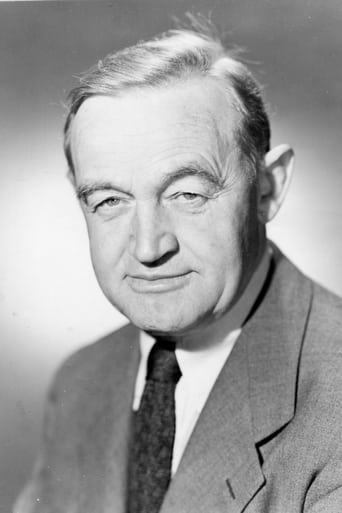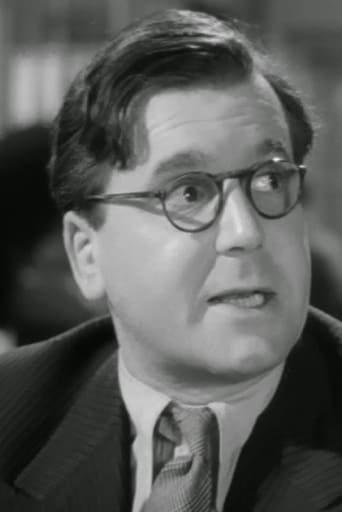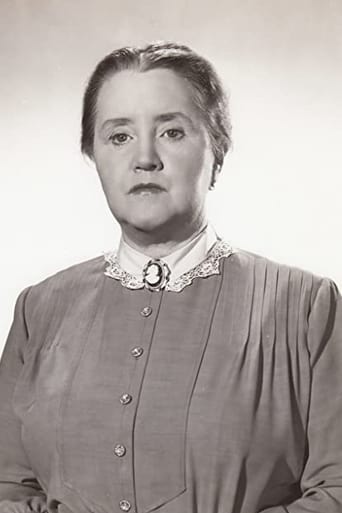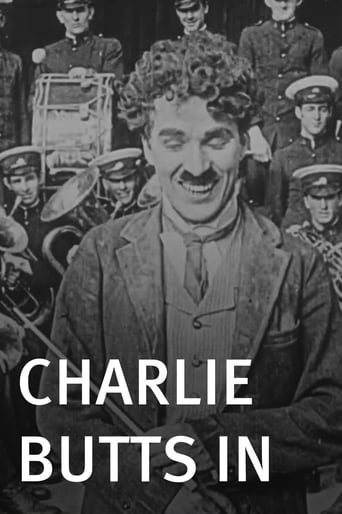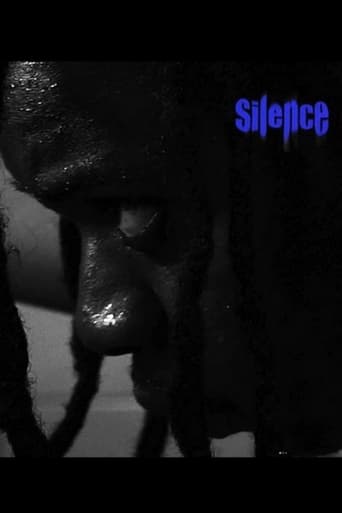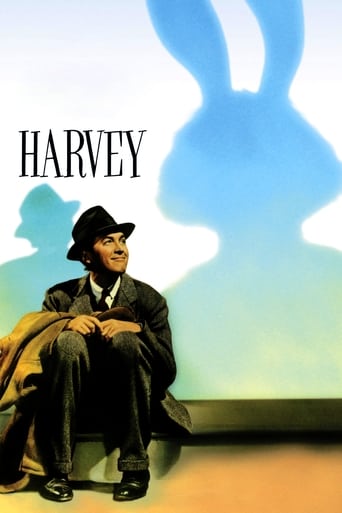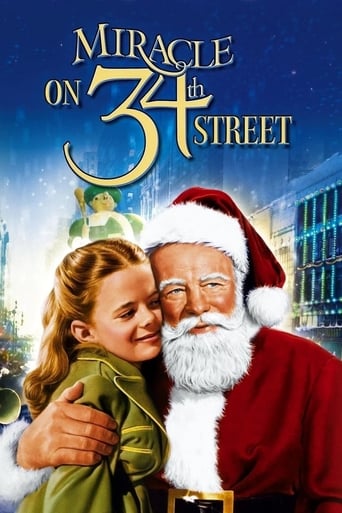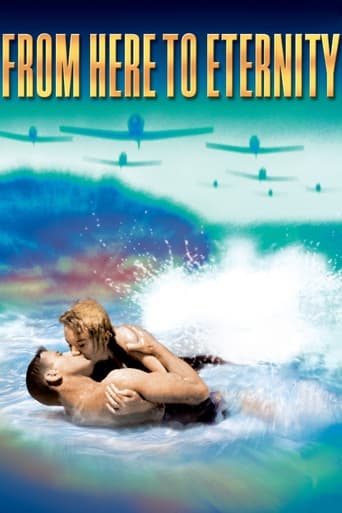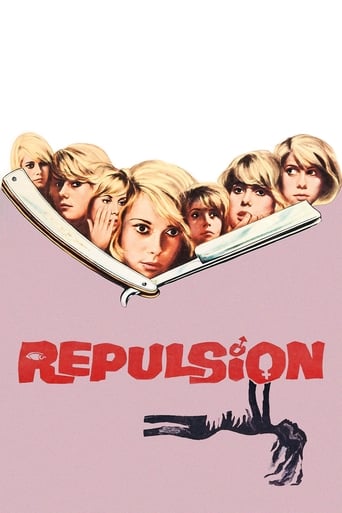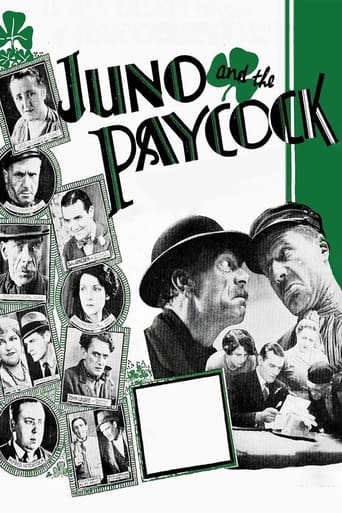
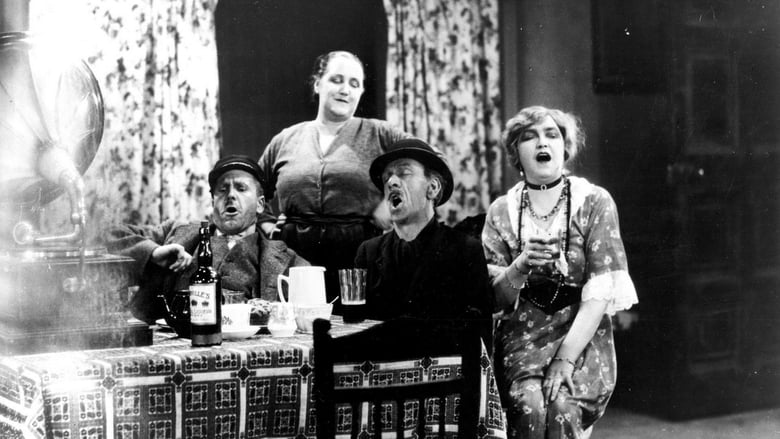
Juno and the Paycock (1930)
During the Irish revolution, a family earns a big inheritance. They start leading a rich life, forgetting what the most important values of life really are. At the end, they discover they will not receive that inheritance; the family is destroyed and penniless. They must sell their home and start living like vagabonds.
Watch Trailer
Cast


Similar titles
Reviews
Directed by Alfred Hitchcock, and written by Sean O'Casey with scenario by Hitch's wife Alma Reville, this successful O'Casey play did not translate well to the silver screen. Instead, it's a plodding mess, though it does serve as a rather inauspicious (talkie) film debut for the Irish character actor, and future Oscar winner, Barry Fitzgerald (Going My Way (1944)).Ignoring the fact that this drama's story is nothing like the director's later works, the film is still completely lacking any evidence of his technique or mastery of the camera (unlike many of his other early films). The film does precede and resemble in many ways director John Ford's The Informer (1935), but the plot's main thrust is how a poor Irish family's prospects change when they learn they are to receive a substantial windfall.An orator (Fitzgerald) sets the Dublin scene: hard times have befallen this Irish community, but everyone is urged to buck up and pull together before gunshots ring out and the crowd has to scatter. So these Irish are poor amidst fighting for their freedom from the British who occupy "their" country. Former sea Captain Boyle (Edward Chapman) is now the loafer patriarch of one of these families, but his wife Juno (Sara Allgood, reprising her role from the O'Casey play) "wears the pants", though occasionally (e.g. in front of non- family members) she lets him think he does. The Boyles have a son, Johnny, who walks with a bad hip and is missing an arm from his freedom fighting days.However, the director makes no secret of the fact that it was Johnny who ratted out a compatriot (though apparently not for money, as Victor McLaglen's character does in the aforementioned Ford film). This is discussed in harsh tones by his father, the Captain, and his friend 'Joxer' (Sidney Morgan) in Mrs. Madigan's (Maire O'Neill) pub. The Boyles also have a comely daughter named Mary (Kathleen O'Regan), who's courted by Jerry (Dave Morris) until Charles Bentham (John Longden) whisks her away with news that her father is to receive a 1,500- 2,000 pound inheritance. Upon learning of their fortune, the family and their fast friends sing joyously during an impromptu party in their once shabby home, now outfitted with a Victrola (record player) and new furniture.It seems the party was the highpoint of the Boyles's celebration as things go downhill from there. As it turns out, there is no inheritance (perhaps it was just a ruse by Bentham to bed Mary). Though the Captain learns of this, he's able to keep it a secret until the creditors come calling. Joxer turns on him first, and seems to be the one who's spreading the "rumor" of the absence of an inheritance. The tailor wants his 13 pounds; Madigan, who wants the bar tab paid, takes the Victrola for her 3 pounds owed; the furniture store repossesses their 20+ pounds worth of merchandise.Johnny is killed by those who learned about his snitching; Mary shames her father when he learns from his wife that his daughter is pregnant. Jerry provides Mary a brief bit of hope, proclaiming his love and offering to take her back now that Bentham has disappeared, until he too learns of her "condition". Juno laments the fact of their poverty to the Lord.
It is hard to believe that this is an Alfred Hitchcock film after all. The movie is based on Irish playwright Sean O'Casey's play of the same name about an Irish family named the Boyles. This is a faithful stage to screen adaptation with some minor changes. Still the cast are members of the Irish Abbey Theatre Company and have performed the play on stage together hundred times. The cast is first rate. Real life sisters Sara Allgood and Maire O'Neill are excellent especially O'Neill in an unforgettable performance. She was such a scene stealer. The family learns that their an inheritance only disappointment in the end. The film is unlike Hitchcock's other films but yet it is worth watching an early stage to screen adaptation with the original cast of players who originated their roles on stage. That is how to do a stage to screen adaptation with the original cast.
I do say this with a heavy heart, and I love Hitchcock and a vast majority of his films and consider him my all-time favourite director. He has directed many masterpieces among of which are the likes of Psycho, Vertigo, Rear Window and Rebecca, and a handful of very good films. But that is not to say that he hasn't had any disappointments, I didn't care for Jamaica Inn, Under Capricorn, Topaz and The Paradine Case very much. Seeing Juno and the Paycock for the first time, as a Hitchcock completest and to see whether it was as bad as I'd heard, unfortunately this was another film of his I didn't care for. It is not quite as bad as I'd heard(it is certainly not bad enough for me to call it one of the worst films I've ever seen) but I do think the complaints are legitimate, though I can see why people will like it too. What was the best thing about it? For me, it was the acting, sure it was theatrical, but in a good way. Sara Allgood's performance is the best thing about Juno and the Paycock, commanding and formidable, and she is supported well by a wonderfully outlandish Sydney Morgan and a suitably gruff Edward Chapman. Barry Fitzgerald is great to see, and he's also very good. In my opinion though, Juno and the Paycock did have a lot of faults, putting that it's badly transferred aside. I was disappointed in Hitchcock's direction here, apparently he was an admirer of the source material(a stage play by Sean O'Casey) but that didn't come across. Instead it seemed as though he had no idea how to direct it, that he didn't genuinely have his heart in it and there is so little of his distinctive style if any at all that like Jamaica Inn and Under Capricorn it didn't feel like a Hitchcock film. It is a very scrappily made film, of Hitch's films Juno and the Paycock is the least accomplished visually that I've seen, the cinematography and editing lacks care and look as though they were done in a rush while the set(s) offer nothing interesting. The music comes across as shrill and obtrusive, while there is far too much talk in the dialogue to the extent that the drama is brought to a screeching halt at times and not enough of the rich characterisations of the source material and the blend of wit and tragedy is nowhere near sharp, powerful or moving enough. The story may be faithful to the play but is bogged down by turgid pacing(the hour-and-a-half duration seems twice as long here, I have nothing against slow-paced films, some of my all-time favourites are so, but not in a long time have I been this bored stiff from a film), scenes that go on for too long and go at a snail's pace and very stagy and somewhat calcified drama/action that what made the play so good is lost in translation. To conclude, very disappointing even for an early effort, especially when such a great director was involved. 4/10 Bethany Cox
Juno and the Paycock (1930) * 1/2 (out of 4) Hitchcock adapted Sean O'Casey's play but the end results are fairly poor. The film tells the story of a Scotish family who quickly begin to fall apart after getting a large inheritance. It's up to the mother (Sara Allgood) to try and keep everyone together and that includes her drunken husband (Edward Chapman). Outside of some great performances we're left with a pretty bland and forgettable film that certainly wasn't what Hitchcock needed. There's no doubt he's to blame for this mess of a film and I believe he pretty much disowned it later in his life. He certainly isn't right for the material because after about ten-minutes you'll realize that you're in a talking mess of a film. I'm really not sure what Hitchcock was trying to do with the film because the story is so dull and lifeless. The technical side of things is also quite messy as the cinematography is poor and it appears they were trying to make the film look like a play but this certainly doesn't help things. Allgood does give a very demanding performance in the film as does Chapman and Barry Fitzgerald. The supporting players are also quite good but in the end it really doesn't matter because the film is just a downright bore from start to finish. Having seen just about every Hitchcock film there's no doubt this here is the worst of the bunch.


